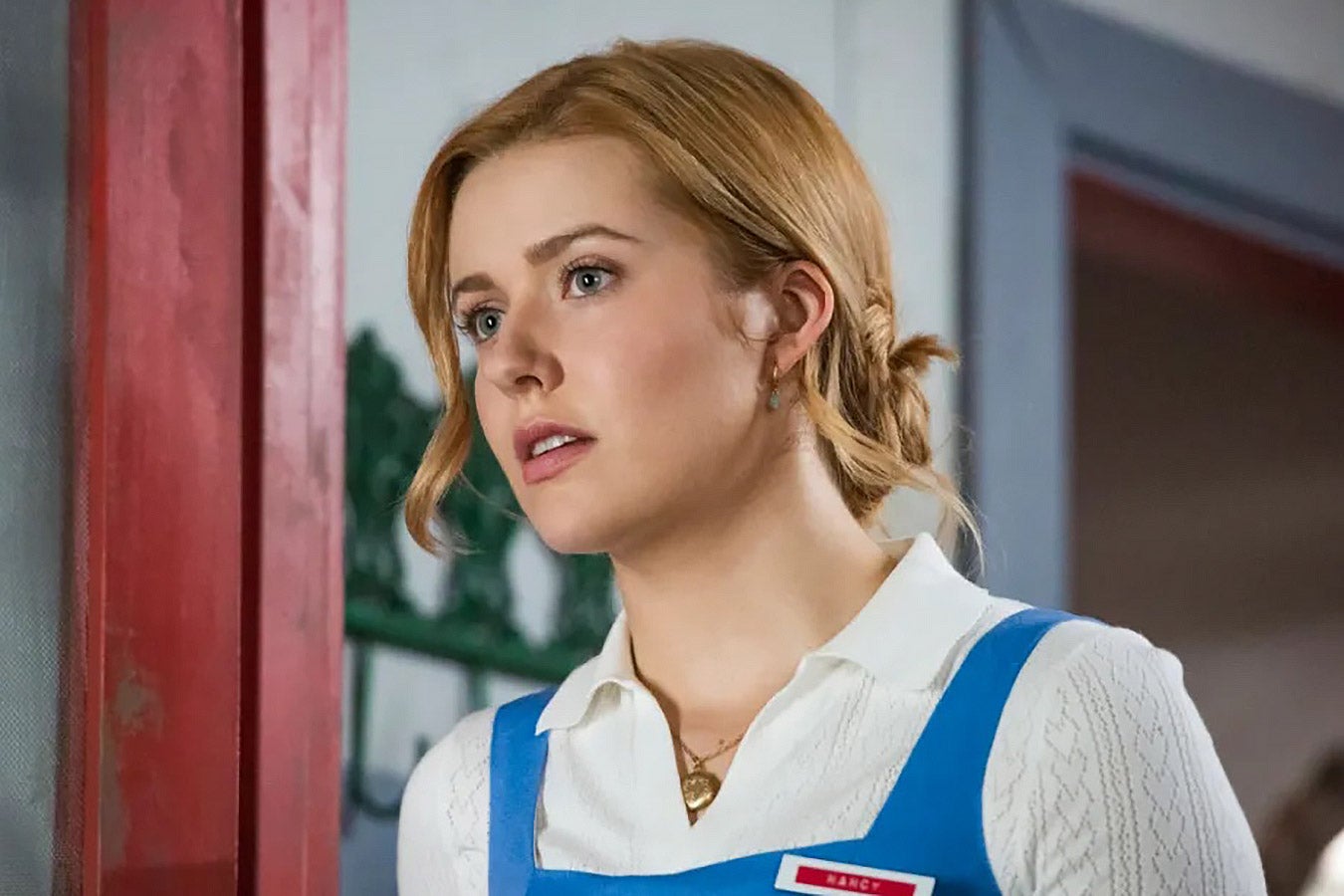Two years ago, I wrote about how the CW’s Nancy Drew—a mature update on the classic IP about the small-town teen detective—had finally modernized the beloved books with an adaptation that had a place for everyone. Now the supernatural mystery drama is nearing its end as it approaches its series finale on Aug. 23. Across its four seasons, the show has only ever gotten better, ratcheting up the townie hijinks, the romance, and the stakes. As we draw closer to the finish line, I find myself—like many of the characters on the show, in their own storylines—grieving the loss of something that, by serendipity, has become important to me.
Nancy Drew got me through the coronavirus pandemic. In those early quarantine days, although I managed to avoid getting COVID-19 until several variants later, I couldn’t seem to keep my limbs intact. I broke the same toe twice and blew my ACL. All of the regular things one could do to vary their days—go on walks, have socially distanced meetups with friends, generally venture outside without hassle—were suddenly unavailable to me. I had a long and painful road to recovery ahead and, stuck inside, I needed an escape.
Enter Nancy and the Clue Crew. I became deeply invested in the will-they-won’t-they roller coaster of star-crossed lovers Nancy (Kennedy McMann) and Ace (Alex Saxon), and I loved hanging out with the residents of Horseshoe Bay as our main squad attempted to solve ghost riddles and absolve witches’ curses. As I recovered, I consumed Nancy Drew episodes over and over. I could now see myself in Nancy’s world and felt engaged by it; the show provided a much-needed respite from thoughts of physical therapy, pain, and the immense losses of the pandemic. Only a show with Nancy Drew’s precise balance of dark and light could have filled that great need.
Since then, I have rooted for Nancy and her friends as they try not only to solve the occasional mythological mystery but also find their purpose: formerly downtrodden George (Leah Lewis), after turning her life around, is attempting to become a lawyer; Bess (Maddison Jaizani) stops trying to impress her rich relatives and is instead following her dreams of maintaining the town’s historical society; Nick (Tunji Kasim), the consummate protector, is flirting with the idea of running for town council. As for the star-crossed lovers? They’re trying to find their way through life as they deal with a death curse that keeps them from acting on their feelings. Ace is training as a mortuary assistant (a helpful job for someone who often encounters the undead), and Nancy, having finally decided not to attend college far from home, opts instead to open up an official detective agency. Meanwhile, empathy remains the show’s driving force: The long-game mystery throughout this season of episodic conundrums involves townspeople owning up to and making amends for the serious wrongdoing of their pasts.
A part of the sting of Nancy Drew’s culmination happening so soon is that, well, it’s too soon. The show was never truly given a fair shake. Of course, a pandemic imploded the creators’ vision for Season 1, shortchanging their plans for a 22-episode run and causing them to end early with 18 episodes. The subsequent seasons dwindled from 18 episodes to 13, in stark contrast to CW juggernauts like Riverdale, a show that, despite much public mockery, has refused to die. (Coincidentally, Riverdale is airing its series finale on the same day as Nancy Drew’s, for a grand total of 137 episodes.) Nancy Drew was canceled after four seasons with so much still left in the main characters’ stories that we could have explored. We know that Nancy will solve the mystery and save the town in the end, and she and Ace will likely beat the curse and finally get a chance to be together. But we won’t get to see the full-fledged relationship that fans of the slow-burn couple have waited four years for, just as we won’t get to watch the rest of George’s path to becoming a lawyer, nor Nick and Bess serving the town in their various capacities. The show is about figuring out how to become empathetic and responsible adults in spite of your trauma, and helping others do the same. It hurts that we get to see these characters’ transformations but we won’t get to see them in their adulthoods.
I’m going to dearly miss the town of Horseshoe Bay and its teen protectors. I have so much to thank them for—for never giving up on one another or themselves, for always endeavoring to find the right way, as opposed to the easiest, for giving one another grace and space when they needed it, for filling in or cheering up whenever called for. Mostly, though, I’m going to miss the network of Drewds—the Nancy Drew fandom—for being a space with its doors wide open to whoever wishes to enter. There’s so much more mystery in Nancy’s small town, so many more problems for her friends to solve. But at least I was able to fight ghosts alongside them at a time when I had no control over anything that was happening in my own world. The show, short-lived as it was, makes me want to be the adult that Nancy and her friends have fought so hard to grow into—compassionate, brave, and pretty good with a lockpick.
